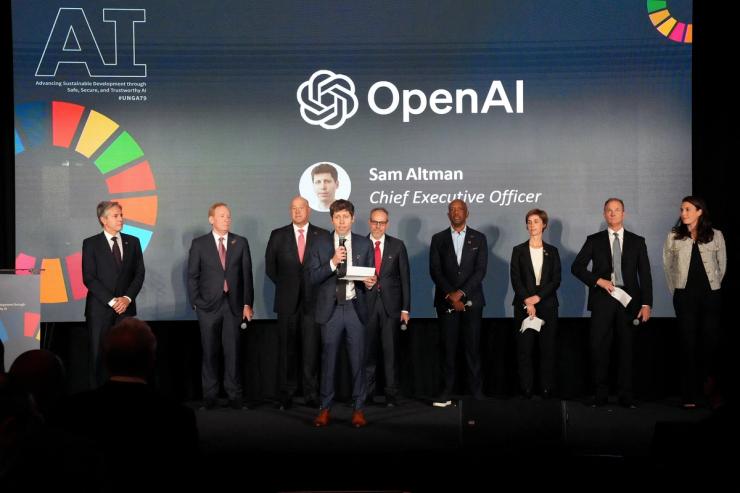The News
OpenAI plans to turn itself into a for-profit company, resolving a tension that’s hung over it for years: How could the people who control technology able to make trillions of dollars for others resist the temptation to make money for themselves?
Discussions now underway with investors, including those expected to participate in a new funding round that would value OpenAI at $150 billion, involve abandoning its nonprofit structure, people familiar with the matter told Semafor, confirming earlier reports by Reuters and others. CEO Sam Altman would get a stake of between 5% and 7%, and others including Microsoft, Tiger Global, and Thrive would crystallize their economic interests of one of the world’s most valuable and controversial startups, the people said.
OpenAI’s latest fundraise appears to have added urgency to the firm’s conversion, which Altman had previously hinted at. Terms being discussed would give investors the right to force OpenAI to repurchase their shares at a prescribed rate of return, if it didn’t voluntarily change its nonprofit status, one of the people said.
Liz’s view
OpenAI had originally set itself up to ensure it could develop AI safely, “unconstrained by a need to generate financial return.” But its cash needs are enormous, and it’s simply too risky for investors to pour billions of dollars into a company that could be derailed by the whims — or moral qualms — of insiders.
OpenAI is hardly the first startup to have its noble mission compromised by financial realities. The stakes are higher here than for, say, Ben & Jerry’s or even News Corp., both of which put in ultimately toothless guardrails to protect their missions when they were acquired by, respectively, Unilever and Rupert Murdoch.
But even traditional corporate governance, where investors’ rights are transparent and well-understood by all stakeholders, is preferable to the murky and Machiavellian dynamics that have roiled OpenAI, seen in last year’s failed boardroom coup.


